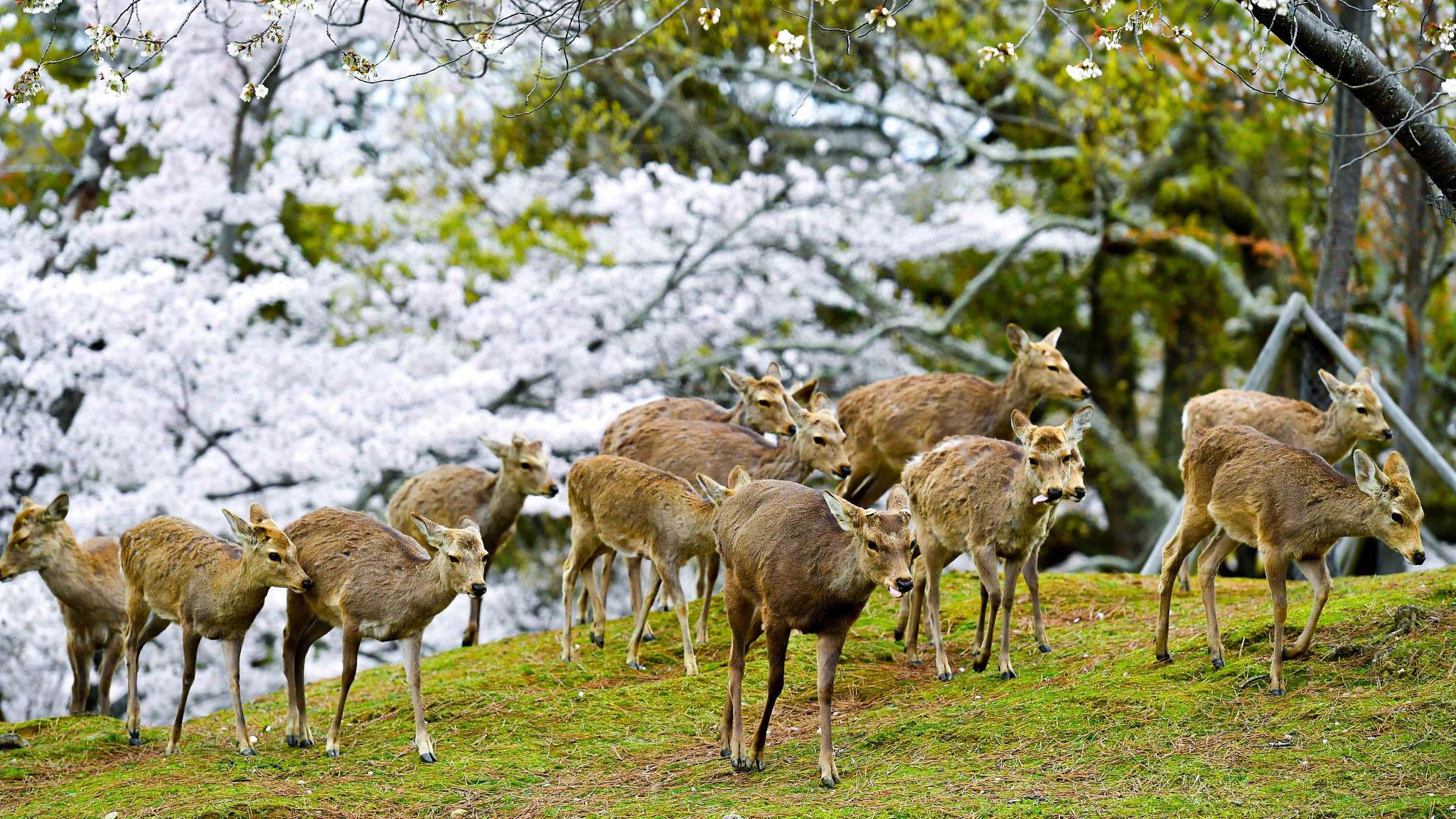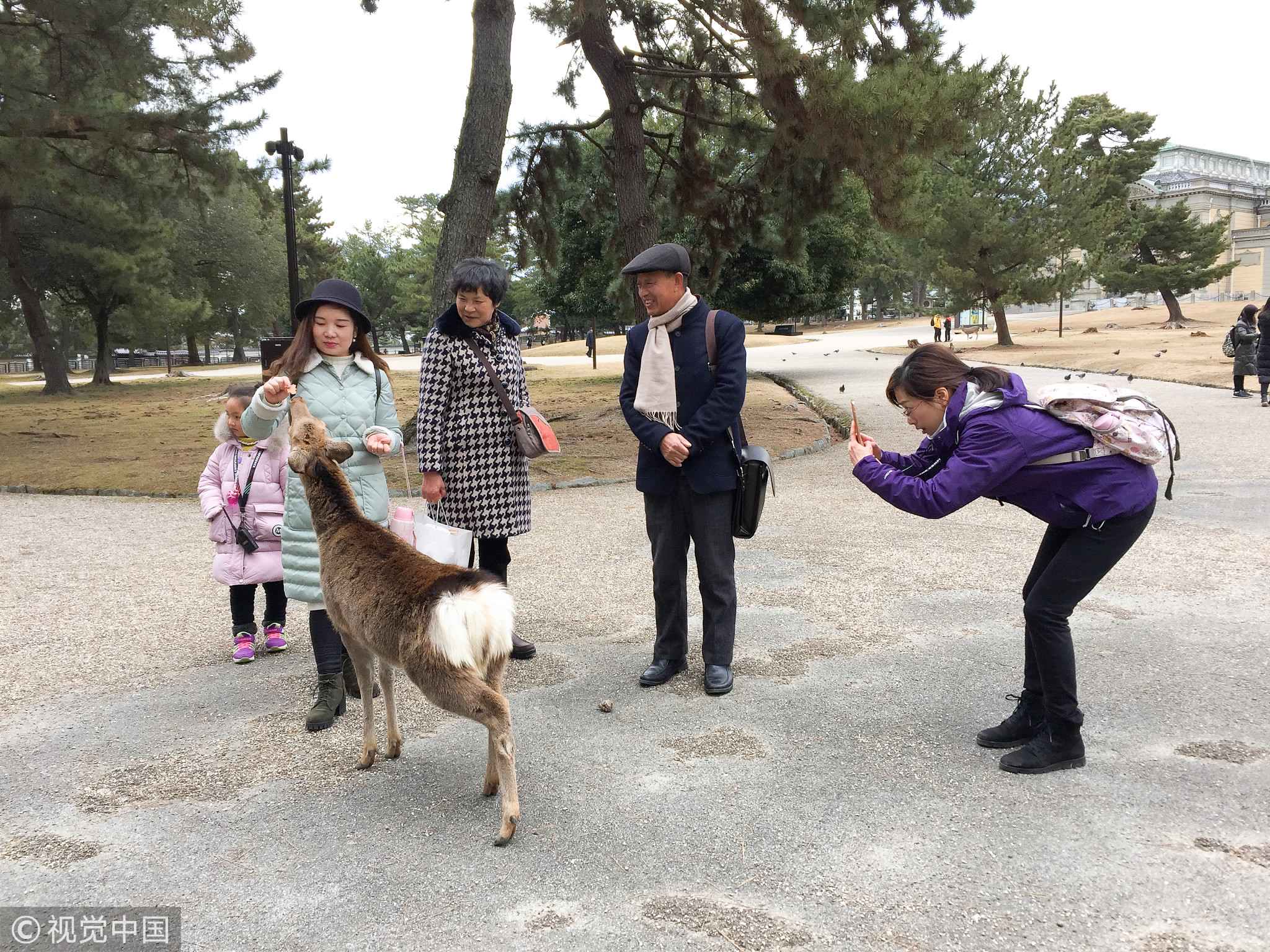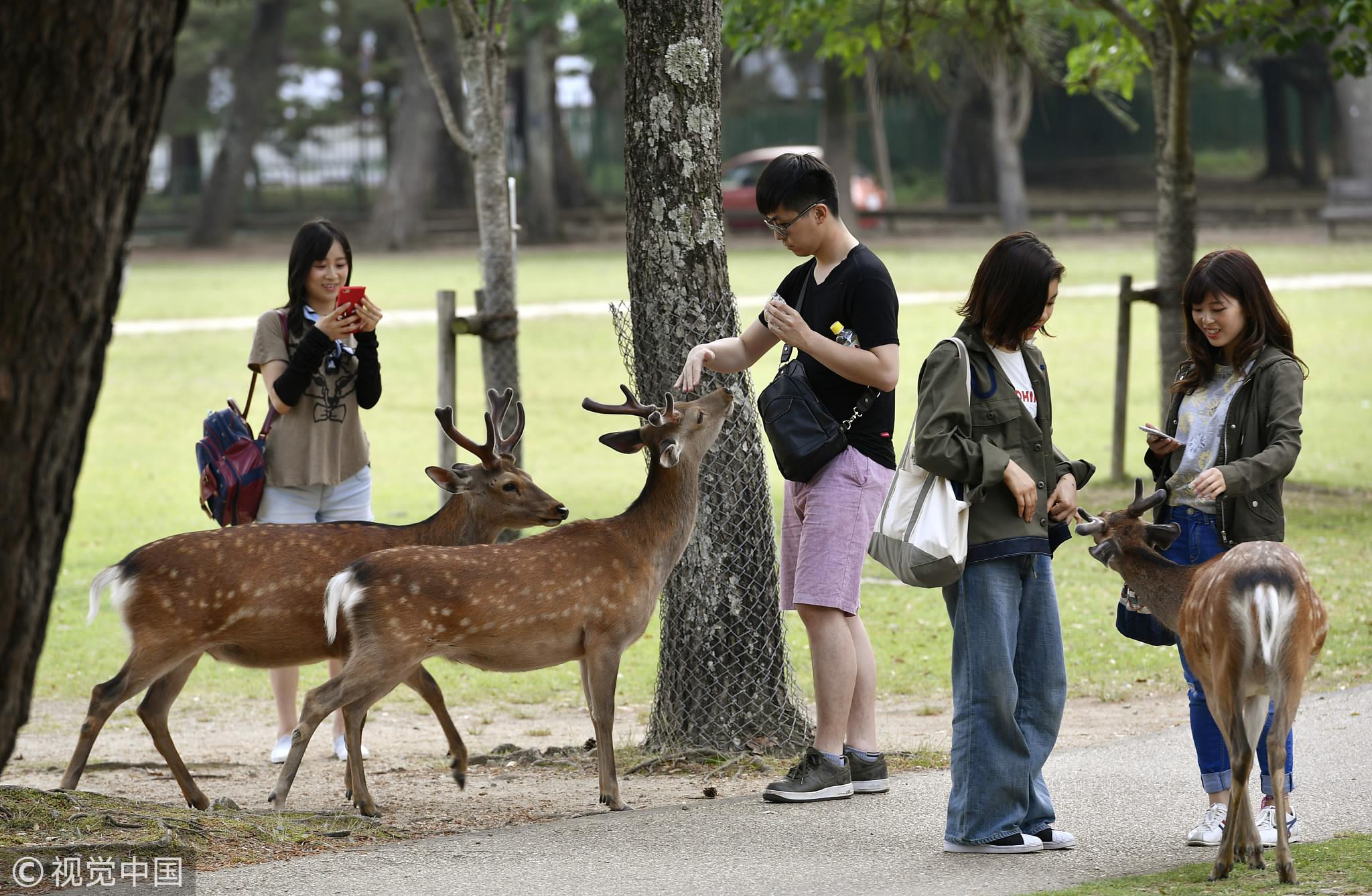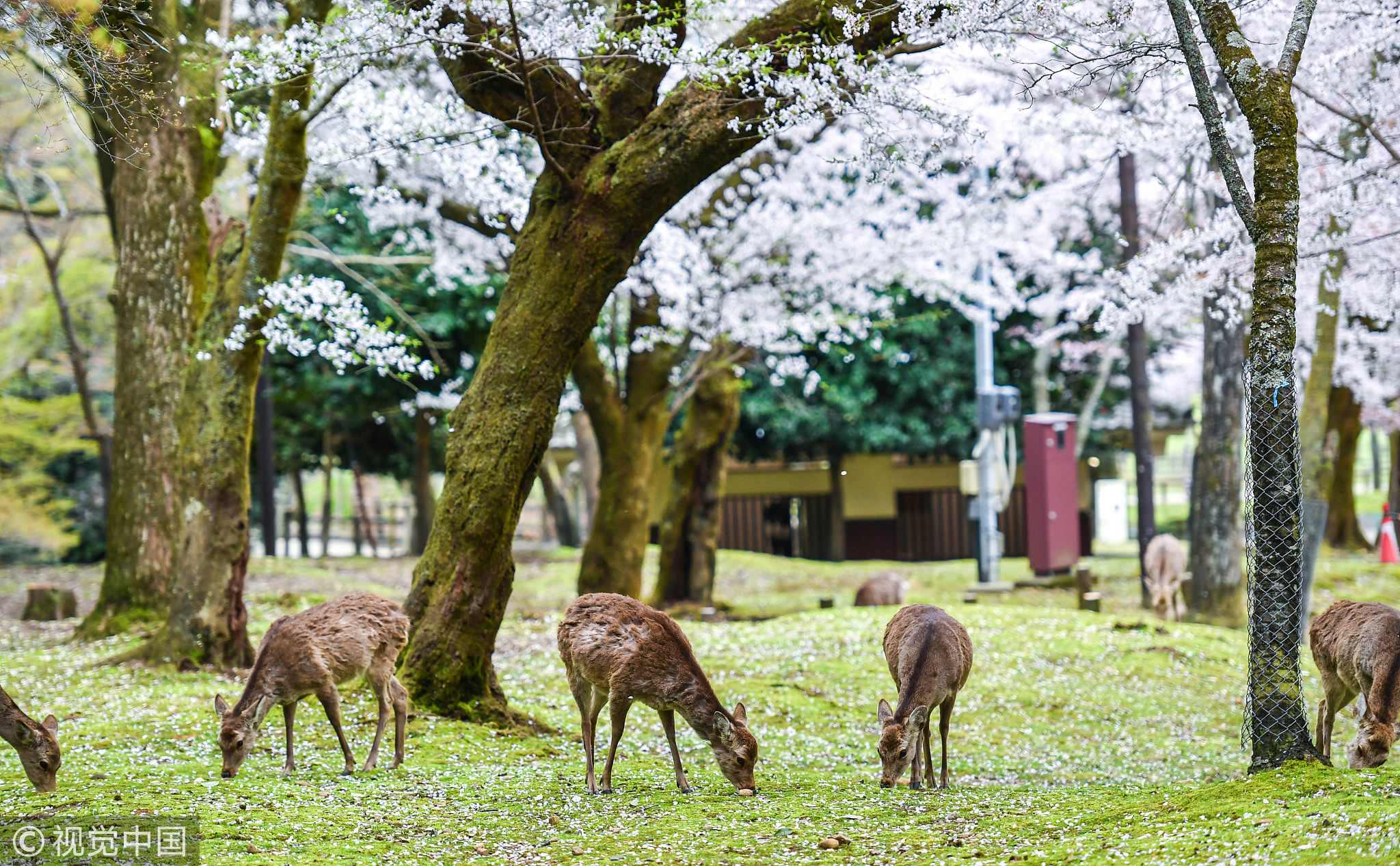
World
12:49, 12-Feb-2018
Deer bites on the rise in Japan park as tourists taunt animals for perfect picture
CGTN

Move over Tokyo Disneyland and Universal Studios in Osaka, there's a new tourist magnet in Japan. Holidaymakers are increasingly flocking to the city of Nara to feed wild deer, in a brand new experience that is literally leaving its mark on some.
With tourists eager to hand-feed wild deer at the Nara Park and more than ever determined to get Instagram-worthy photographs while at it, the grazing animals are becoming increasingly annoyed and biting incidents are on the rise.
According to the latest statistics by the Nara Prefectural Government, 164 injuries were recorded between April 1 last year and January 31, 2018 – up from 118 cases in the same period a year earlier.
The injuries are reportedly minor, and involve foreign tourists – mostly from China – in 79 percent of the cases.

Tourists feed the deer and take photos in Nara. /VCG Photo
Tourists feed the deer and take photos in Nara. /VCG Photo

Tourists feed the deer and take photos in Nara. /VCG Photo
Tourists feed the deer and take photos in Nara. /VCG Photo
The local government said most of the injuries were caused when visitors were feeding the deer.
Yuichiro Kitabata, an official of the prefectural government told Japan Times that many tourists test the animals' patience by making them wait for too long when they feed them as they attempt to get a perfect shot on their phones.
To reduce the risks of injury, local authorities set up 40 signboards in several languages around the park and produced informational videos to teach tourists how to behave around the deer.

VCG Photo
VCG Photo
"Many think the deer in the park are tame and trained but actually they are wild animals," Yuichiro clarified and added that "the deer generally do not attack people and they are used to people. But tourists still need to keep in mind that they are wild animals."
Statistics by the Japan National Tourism Organization (JNTO) show that 1.65 million foreign tourists visited Nara in 2016, up from just 285,000 in 2012.

SITEMAP
Copyright © 2018 CGTN. Beijing ICP prepared NO.16065310-3
Copyright © 2018 CGTN. Beijing ICP prepared NO.16065310-3